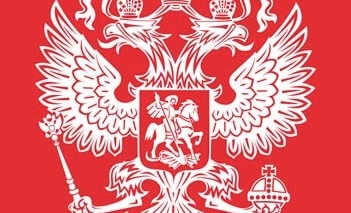In the Ossetian town of Akhalgori, the newly Russian appointed police chief gave residents a threatening but plainly simple choice: take a Russian passport or leave town!
Russian legislation pending would simplify the citizenship procedures for some foreigners. For Western countries who had asked for Moscow to back down during the beginning days of the annexation of Crimea this was Moscow's measure of defiance. It was clear that Ukraine and the rest of Russia's ‘near abroad' was seen by Russians as an extension of Russia proper.
Dmitry Medvedev explained that simplified procedures would see the granting of citizenship in three months. (This is without any residency requirement. In Canada the mandatory residency requirement is three years.) This would apply to people who had lived in Russia or on territory that was once part of the Russian empire or the Soviet Union. (One wonders if this ‘privilege could be extended to Alaskans or Finns. At some time in the past, they had also been part of the Russian empire.) Moscow was thinking also in economically beneficial terms: highly qualified professionals and specialists who had graduated from Soviet or Russian institutes or universities would have precedence. (As another aspect of this from the past, during the trickle of emigration of Jews in the 1970s, the Soviet Union imposed a “diploma-tax” on would be emigrants who received higher education in the USSR. In some cases the fee was as high as twenty annual salaries. This policy was apparently implemented to stem the ‘brain drain' caused by the increasing number of Jews and other members of the intelligentsia who wanted to leave for the West and who needed an exit visa (permission to leave) which was required by all.)
Substantial populations of Russian speakers are situated in the peripherals of the old Soviet empire. They consist of Russians who migrated and/or were relocated there by the Soviet state. The relocation was an essential part of Soviet ‘russification' policy aimed at changing the ethnic make-up in potentially anti-Moscow satellites.
Latvia and Estonia have significant ethnic Russian communities. About 27% of Latvia's population of 2 million are ethnic Russians. One quarter of Estonia's 1.3 population are of Russian ethnicity. Both countries have strong trade ties with Russia and depend to a great extent on Russia as an energy resource. The Russian ambassador to Latvia recently announced that the Kremlin was planning to offer passports and pensions to ethnic Russians in Latvia “to save them from poverty”.
Somewhat southeast of the Baltic states the countries including Belarus, Moldova and Ukraine all have substantial Russian populations. Belarus has 8% Russians in its population. The country is a close ally of Russia, is a member of the Moscow-led “Eurasian Union” trade bloc that Putin expects to develop into a “powerful, supra-national union” of sovereign states like the European
Union.
The Transnistria region of Moldova is starkly similar to the Ukraine-Crimea situation. Although Moldova has only 6% of Russians in its population, they are heavily concentrated in the Transnistria area where 200 Russian troops in essence have occupied the country under the guise of enforcing a ceasefire between Moldova and separatists. The similarities with Crimea continue: recently, as the Crimean crisis progressed, the local parliament asked Moscow to grant the breakaway region Russian citizenship and admission to the Russian federation. A nearly perfect application of Russia's “passportization”.
Vincent M. Artman, an expert on “passportization” states that if the West sees the process as a politically aggressive tool in international relations, why has it not been declared illegal? Theoretically states may at will extend citizenship to whomever they please. But outright mass “passportization” eventually deprives states of their sovereignty over a significant portion of their population. In their own defence, Ukraine is forced to prohibit dual citizenship as a deterrent. One recalls that not long after the invasion of Georgia, the Ukrainian foreign minister Volodymyr Ohryzko predicted that Russia would make a grab for Crimea by means of ‘passportization'.
In spite of the explanations of Moscow that conferring citizenship to those that ‘plead' for it is the only humane and decent thing to do, promoting and distributing Russian passports on mass on the territory of another sovereign state is loaded with legal, political and territorial significance. Unquestionably Russia has domestic demographic problems with negative growth of the Russian population. A liberal migration policy would logically emerge as a potential solution with a strong ‘attraction' component as part of the program. But ethnic considerations are the main factor in the emigration policy. In Ossetia and Abkhazia Russia handed out citizenship without any procedures whatsoever while migrants from Central Asia were viewed with suspicion. Clearly the passport drive on Georgia's sovereign territory was preparation for annexation, not an alleviation of a population problem.
Artman continues: ‘Passportization' on a large scale began as early as 2002, fully six years before the annexation of South Ossetia and Abkhazia in 2008. It was a simplified process with people sending their documents, such as old Soviet passports, to a special office in Sochi. When the passports were returned, the passports attested that the applicants were now Russian citizens. “Creeping annexation” is how Georgians denounced this. At the start of the 2008 war 90% had become Russian citizens.
Russia's possible use of passports to destabilize and dismember a neighbouring state is inevitably cause for concern and caution. The innocent passport has become a potent weapon of aggression.
Laas Leivat




